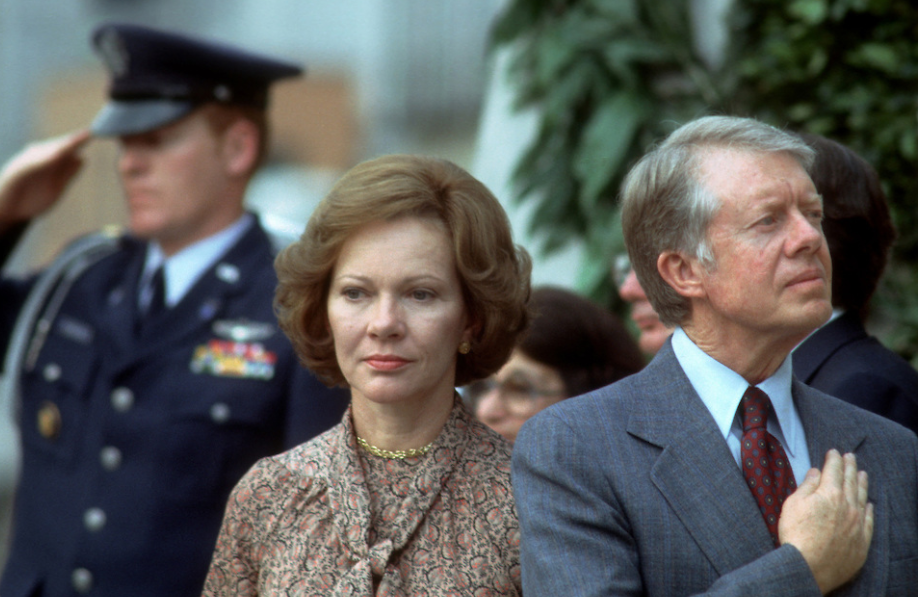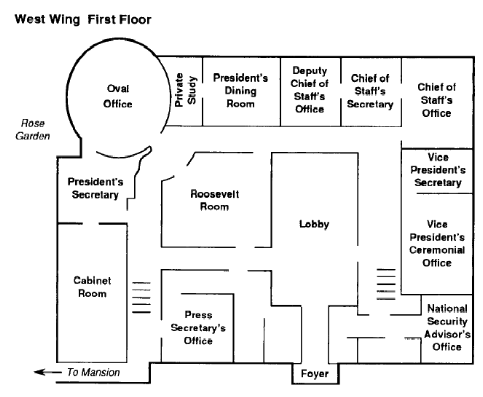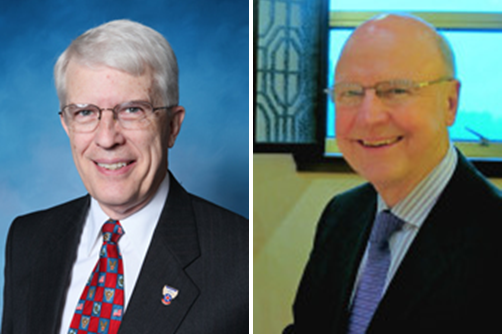By John Helmer, Moscow
If ever there was a man who displayed on his face the evil on his mind, it was Zbigniew Brzezinski, (lead image, right) who died last week at a hospital near Washington.
Former President Jimmy Carter, who employed Brzezinski as his National Security Advisor between 1977 and 1981, the only high official post Brzezinski reached, said he “helped me set vital foreign policy goals, was a source of stimulation for the departments of defense and state, and everyone valued his opinion.” Of Carter’s three claims, only the first is true; the second is ironic hyperbole; the third is completely false. If Carter cannot tell the truth now about Brzezinski, after having 36 years to reflect on it, Carter reveals the principal source of Brzezisnki’s power, when he exercised it. For Carter was no innocent ventriloquized by the evil Svengali (lead image, left), as in the original Svengali tale. Carter was simply more mendacious than Brzezinski, and is entirely to blame for doing what Brzezinski told him to do.
Brzezinski was an obsessive Russia-hater from the beginning to the end. That led to the monumental failures of Carter’s term in office; the hatreds Brzezinski released had an impact which continues to be catastrophic for the rest of the world.

Carter and Brzezinski in Carter’s study, three months into the presidential term -- April 19, 1977.
To Brzezinski goes the credit for starting the organization, financing and armament of the mujahideen, the Islamic fundamentalists who have metastasized — with US money and arms still — into Islamic terrorist armies operating far from Afghanistan and Pakistan, where Brzezinski started them off. Only today, Russia – the target of Brzezinski’s scheming — is relatively better prepared and safer from the terrorists than the countries of western Europe and the US itself.
To Brzezinski also goes the credit for projecting Iran on to its nuclear-armed path against the Great Satan and US allies in the Middle East, making the sunni-shia sectarian division into a cause of international war which it was not, before Brzezinski began. That it was not is due to the power of the secular Arab leaders to sustain an alternative to religion for governance. Brzezinski’s idea was to target them as Kremlin stooges and overthrow them. To Brzezinski also goes the credit for releasing Israeli ambition under Menachem Begin and his successors on the Israeli right; the promotion of Egyptian corruption and weakness under Anwar Sadat and his successors; and the destruction of the Palestinians.

Left: Sadat standing up, with Begin and Carter at the signing of the Camp David accords, September 17, 1978. Right, Sadat’s downfall in Cairo at the Egyptian Army’s annual victory parade, October 6, 1981.
In Carter’s obituary, he also gives Brzezinski the credit for “an essential role” in two other achievements Carter still claims for himself: “normalization of relations with China [and the] signing of the SALT II treaty.” Carter is exaggerating the little he did, after his predecessors Richard Nixon and Gerald Ford had initiated and negotiated the terms for both. Carter says nothing about his failure to influence the course of US nuclear weapon designs that continue to evolve unhindered, and the schemes of first-strike war-fighting against both Russia and China which are virtual, if not quite stated US policy today.
Brzezinski thought he knew how and why to start war against Russia. But he couldn’t calculate more than two or three moves ahead, before his adversary’s tactics failed to meet Brzezinski’s strategic anticipation. He didn’t know what to do when outwitted several moves along in his strategic plan. He didn’t comprehend how to end wars he started but couldn’t win. Never-ending war was Brzezinski’s monomania – he had a clinical case of the pathology.
Read Carter’s statement on Brzezinski again for a glimmer of light; click. Apart from the reference Carter makes first to his wife Rosalynn’s views, there is no illumination. In 1977 Rosalynn Carter had different views from her husband’s, but regarding Brzezinski and others in the Carter White House, she never dared to express them in public. On pain of instant dismissal nor did anyone else in the White House then. And there were no leaks.

Rosalynn and Jimmy Carter, February 1979.
If not for Carter, Brzezinski would have remained the marginal voice he was before and after the four-year Carter term. From the start of that term, in the first six months of 1977, Carter was also warned explicitly by his own staff, inside the White House and working on his confidential instruction, not to allow Brzezinski to dominate his policy-making to the exclusion of all other advice, and the erasure of the evidence on which the advice was based.
I know this because I was a member of the staff in those days. I know because I drafted the terms of a series of staff investigations which Carter requested and then authorized of how the advice he was receiving at his desk was influencing the choices and policy options he had to decide – memoranda from the cabinet departments, briefs from the intelligence agencies, and commentaries from different elements of the White House organization itself.
The investigation of two of Brzezinski’s policy recommendations to Carter was assigned to a US Airforce officer on secondment to the White House staff at the time, Len Vernamonti; and to me. We were part of a group of 25 titled the President’s Reorganization Project (PRP). Our offices were in the New Executive Office Building, the red-brick structure across the street from the State, War and Navy Building, aka the Old Executive Office Building (OEOB); in Mark Twain’s epithet, the ugliest building in America. Twain was referring to what the inhabitants of the building did, not to the exterior or interior decoration, which was grand. Brzezinski’s staff operated in the OEOB. He himself, like his predecessors, kept his own office in the West Wing of the White House, diagonally across the lobby from the Oval Office and Carter’s personal study.
The PRP, a Carter election campaign invention unprecedented in White House history, had the job of preparing a study for the president on how his White House operations might be organized to expand his policy choices, enlarge the evidence available for him to read – Carter was very keen on reading — anticipate consequences, and curb bureaucratic empire building outside the Oval Office. The staff had mostly come, as had I, from Carter’s campaign advisors. Major Vernamonti, as he was then, had come to the PRP by secondment and by chance.
The idea of reorganization at the top of the US government bureaucracy wasn’t novel; it most often accompanied incoming presidents whose party had been out of office for a long time and who wanted to purge non-loyalists and find jobs for their own people. But the idea of opening up the president’s files and reassessing the decisions he had made in his first six months had never been attempted before.
Military, intelligence and foreign policy topics were off-limits because of the classification and security clearances required, so the PRP focused on domestic policymaking. In organizational management terms, they amounted to the same thing. We compiled a list of topics for investigation from among the public and private priorities of the new administration; Carter was asked to select which he wanted us to study. About 30 topics were selected; two were assigned to each of a dozen two-man teams. By Carter’s order, we had authority to open all files, including those of the National Security Council (NSC). Bzezinski didn’t like that; he resisted; he lost the first round
The subjects of the Brzezinski investigation remain classified. It’s exactly 40 years since I last saw the papers. They were secret at the time, but there was a deeper, darker secret.
When Vernamonti and I had written up our two reports, we concluded that Brzezinski had been deliberately and systematically misinforming and misleading Carter in his policy memoranda. He withheld evidence; mistook or misrepresented what other officials and their agencies were saying; and manipulated the decision and action tails of his memoranda, so that Carter would think he had little option but to do what Brzezinski told him to choose. Our job, Carter had told us when we commenced work, was to spot the fox in the hen house, and warn him before there were fatal consequences. He had been a Navy officer and a submariner; also the Georgia State governor. So he knew about the pathologies of command and control; he also knew about fatal consequences. But neither he nor we anticipated that the fox would turn out to be Brzezinski, nor the chicken turn out to be Carter himself.
No president had ever been presented with such a stark analysis of his own reading of papers and his own decision-making. I knew that because I had consulted with senior White House staff directors going back to Franklin Roosevelt’s time.
The recommendations Vernamonti and I drew from the decision-making research were revolutionary. We proposed that Carter retain a personal national security advisor with a staff restricted to sub-advisors amounting to less than a score. The large NSC bureaucracy, growing across the driveway in the OEOB, was to be broken up and returned to the mainline departments. Our idea was that the National Security Advisor would be restricted to being just that – an advisor in a staff function. Line command and control, which McGeorge Bundy started with President John Kennedy in 1961, and Henry Kissinger perfected under Richard Nixon between 1969 and 1975, was to be halted because it encouraged a government-wide war for the president’s mind, which usually ended badly – not for the advisor but for the president.
There were more than 300 pages in the final PRP report, including the executive summary and the recommendations, plus the case studies. Brzezinski got early warning of the studies, and then received the drafts, plus a copy of the cover memorandum with recommendations. He saw at once the danger, and went to work on our superiors. The upshot was that on the weekend before our staff was due to present the report to Carter at a White House meeting, and answer his questions, Vernamonti and I were called in to an urgent meeting with the PRP leader, and his superior, Harrison Wellford.
Like several of us on the staff, Wellford was a Harvard graduate, with an equable, jocular Massachusetts manner of dealing in tight spots. He describes his background on the Carter campaign and then on the presidential transition team of 1976 here. But on the day Wellford called Vernamonti and me into his office, Wellford was not his usual self. He made clear that Brzezinski was furious, and would not allow our conclusions to go to Carter. Wellford himself didn’t disagree with the evidence or the findings. He didn’t disagree with the recommendations either, he said. But he lacked the power to fight Brzezinski with Carter, he conceded.
In his encomium on Brzezinski’s death, Carter said last Friday: “Having studied Zbig’s impressive background and his scholarly and political writings, I called on him to advise me on foreign policy issues during my first presidential campaign. I liked him immediately, and we developed an excellent personal relationship.” That much is true. Carter also remembers: “He was brilliant, dedicated, and loyal.” From the Harvard point of view, the first adjective was unexceptional – there are hundreds and thousands of ”brilliant” Harvard graduates; about a dozen of them in the Carter White House. But dedicated and loyal Brzezinski was solely to himself – not to Carter nor the presidency he had been elected to run. Brzezinski’s choices were among the reasons Carter was defeated in the landslide election of November 1980.
But that’s getting ahead of our little tale. Wellford told Vernamonti and me he had no choice but to give us strict orders for the meeting scheduled the following week with Carter. Our case studies might, he said, be included in the tabs to the PRP briefing book we would present to the president. But the conclusions, and the recommendations for reform of the National Security Council, would be eliminated. Then Wellford added an ultimatum: Vernamonti and I would be allowed to sit at the meeting with Carter. But we were to say nothing unless Carter spoke to us. If that happened, we were not to mention our recommendations on Brzezinski. If we did that, we would both be fired instantly. That would have meant the end of Vernamonti’s airforce career.
Wellford added this was a secret we were not to tell to anyone.
The upshot was this. Wellford, plus the PRP team leader (a Georgian like Carter whose name I’ve forgotten), the others on our staff; Vernamonti and I met with Carter to present our report. The meeting took place in the Cabinet Room. Vernamonti and I sat to the right of our superiors; Carter was across the table, his back to the windows. Brzezinski was present, along with other senior White House staff advisors of the day. The big briefing book lay in front of the president. He spoke of congratulations for the originality and painstaking work we had done, and promised to read every word. He asked questions, but not of Vernamonti or me. We stayed shtum. We walked out keeping our jobs, as did everyone else, especially Brzezinski.
Our defeat stayed secret for years. Ours was not the nail for want of which the shoe was lost, the horse, the knight, the battle, etc. There were many other nails, shoes, horses and knights lost, starting with Secretary of State Cyrus Vance, but he died in 2002 without telling as much as he could and should have done. Carter, however, did lose his kingdom, ignominiously. That still stings with him. Vernamonti (pictured recently, below left) went on to a brilliant USAF career, managing the purse which paid for US ballistic missile programs. Wellford (right) has managed the legal side of some of the largest energy businesses in the US.
Many years later, after the New York Times reported how thorough and effective Carter’s reorganization of the White House had been, I responded with a letter detailing part of the Brzezinski record of 1977. I omitted Vernamonti’s name, in case he was still in the Air Force; I included Wellford’s. The letter was cued to be published, according to a Times editor who telephoned to check a couple of name-spellings and dates. But the letter never appeared. I was told by the Times that in advance of publication, Brzezinski was shown the text, and he commanded that it not appear. The newspaper did what it was told.
Brzezinski is not the only Russia-hater of extraction from the minor Polish nobility to make a career of his monomania. For more of what he and Carter failed to achieve in Syria, read this; and in Ukraine, this. For the other Polish monomaniac of recent times, Radoslaw Sikorski, read more.
Brzezinski is the only national security advisor in American history to succeed at mesmerizing his president into singing his songs, as the character of Svengali did to Trilby O’Ferrall, an Irish working girl, in the best-selling novel of 1894 by George du Maurier.
Carter is mesmerized still. Without Carter, Brzezinski would have remained an inconsequential academic among many contending to be heard. Carter gave the power of the White House stage to Brzezinski’s voice. The ruin which has followed is Brzezinski’s evil, but the evil-doing, that’s Carter’s fault.














Leave a Reply